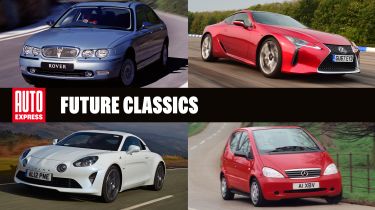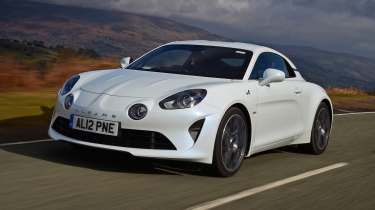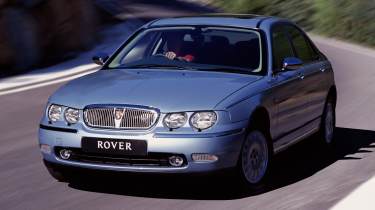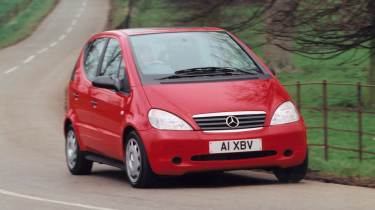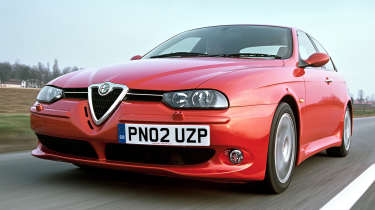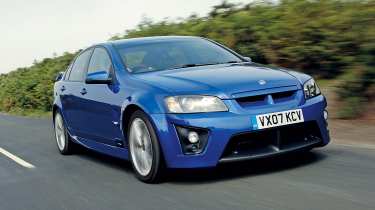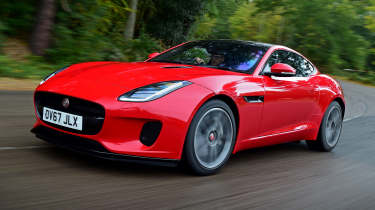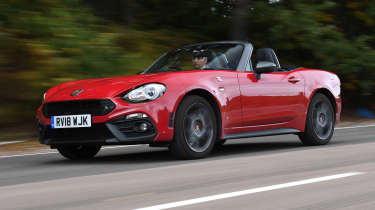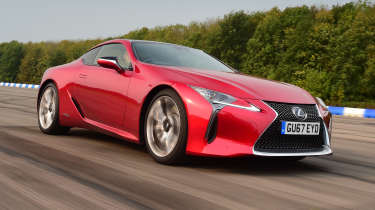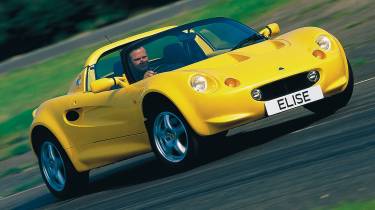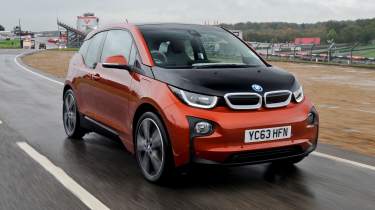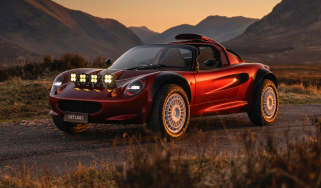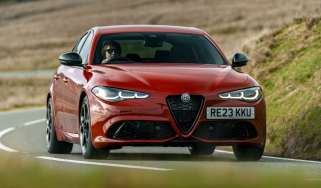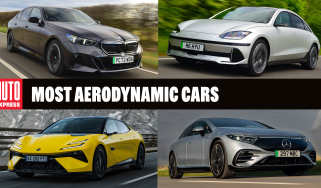Best future classics 2025: car investments that could make you money
Identifying future classic cars is a tricky but potentially lucrative business, here are our future classic recommendations
There are a number of ways to invest your money, but few will bring as much enjoyment as owning a classic car. As with any investment, there’s a significant level of financial risk involved in the classic car market, so it’s best to pick a collector’s car that you can really enjoy. If it doesn’t lose anything or even goes up in value when it’s time to sell, then it’s a bonus.
In order to maximise your chances of making a profit, the trick is to identify the best future classic cars and snap them up at the right time. This can be difficult, but as once-familiar cars start disappearing from our roads, the newfound rarity of the examples that remain often becomes appealing to collectors.
Of course, there are also plenty of cars that weren’t exactly common when new, and low-selling models can attract big money from potential buyers who are searching for something even more unique.
The best future classic cars to buy now
Below our experts have rounded up a selection of cars produced over the last two or three decades that all have future classic potential. Some are just at the point where prices are beginning to climb, but we’ve also looked at newer cars that could prove to be a sensible long-term investment.
Alpine A110
By Jordan Katsianis
- Price new: from £54,490
- Powertrain: 2.0-litre four-cyl turbocharged petrol, seven-speed dual-clutch auto
- Power: 252bhp
- 0-62/top speed: 4.2sec/171mph
As with fashion, film and politics, trends are rife in the car world. They can lift up and destroy automotive dynasties at a whim, but when a car is particularly good, it can transcend everything. One example is Alpine’s retro-styled A110 – because it’s an absolutely brilliant car.
Launched in 2018 after a troublesome birth (a cancelled development partnership, and no US type approval), it defied it all to be a world-changing sports car that continues to delight all who experience it.
Over the years, it’s been available in a range of different forms, from S to GT and the wonderful, if expensive R. But while every edition is great, there’s something so refreshingly pure about the base car.
Alpine also launched an Atelier personalisation service, so there is a huge range of different colour and style options out there, which could make finding the right one for you quite a treasure hunt. But there’s unlikely to be a car like the A110 again, so it will never go out of style.
Rover 75
By Shane Wilkinson
- Price new: £23,000
- Price now: £5,000
- Powertrain: 2.5-litre V6 petrol, five-speed manual
- Power: 174bhp
- 0-62/top speed: 8.2sec/137mph
It’s almost two decades since MG Rover went under, but it went out in style. The Rover 75 was a luxury car for the masses, and I have fond memories of soaking up the miles as a passenger in the one my dad used to own. They all look upmarket on the outside, but it’s Connoisseur SE trim that’s peak 75, with lashings of leather and wood.
Several powertrains are available and the 2.5-litre KV6 engine paired with a manual gearbox is the one to go for. There’s also a Ford-sourced V8, but cars with this can reach as much as £20,000 on today’s market. Whichever 75 you go for, the general rule is “the earlier the better”, because later cars were plagued by budget cuts and ropey build quality.
Mercedes A-Class (W168)
By Chris Rosamond
- Price new: £11,379
- Price now: from £1,000
- Powertrain: 1.4-litre four-cyl petrol, five-speed manual
- Power: 81bhp
- 0-62/top speed: 12.9sec/106mph
Mercedes-Benz usually sticks to tried-and-tested ideas, but there was nothing reserved about its first supermini – the groundbreaking A-Class. The car aimed to offer family car space in a small body, and it’s still an exemplar for effective packaging. Novelties include a sandwich floor and a raked engine that moves under the passengers in a front impact.
Noted designer Steve Mattin was responsible for the exterior, which I still think impresses more the longer you look at it. The infamous ‘Elk Test’ debacle in Sweden marred its launch, but the A-Class sold well before being replaced by a less clever second generation. It was a troublesome project for Mercedes, for sure, but a good backstory is part of any classic’s appeal.
Alfa Romeo 156 GTA
By Alex Ingram
- Price new: £26,230
- Price now: from £9,000
- Powertrain: 3.2-litre V6 petrol, six-speed manual
- Power: 250bhp
- 0-62/top speed: 6.1sec/155mph
About 10 years ago, I set myself the task of buying the best-looking, best-sounding car for the modest £2,500 budget I had. For me, it was easy: the Alfa Romeo 156, and nothing else came close.
To my eyes, it’s still the prettiest four-door saloon ever: beautifully proportioned, not over-designed, yet distinctive enough to make it unmistakably Alfa Romeo. Then there’s the noise, courtesy of the legendary Busso V6 in 2.5-litre form - which makes the most glorious sound of any mass-production engine ever. It’s the hot GTA edition that’s most destined for future classic status, though. Rivals are sharper to drive, but few have as much character. However, prices are already on the up, so you’ll need to be quick.
Vauxhall VXR8
By Paul Barker
- Price new: £30,000
- Price now: from £16,000
- Powertrain: 6.0-litre V8, six-speed automatic
- Power: 411bhp
- 0-62/top speed: 5.0sec/155mph
I Love cars that are practical and silly at the same time, so a lazy, rumbling Australian saloon with huge exhaust pipes, a ridiculous spoiler and an almost 500-litre boot ticks many boxes.
The Vauxhall VXR8 is as subtle as Aussie humour, but it offers a five-second 0-62mph time from a 411bhp 6.0-litre V8 (later, a 425bhp 6.2). It wasn’t as popular as its predecessor, the Monaro, but I love the saloon’s underdog status – and the noise it makes. It’s a brute of a motor at a time where everything is becoming sensible, and it’s a lot of car for the money.
Jaguar F-Type
By Dean Gibson
- Price new: £63,060
- Price now: £23,000
- Powertrain: 3.0-litre V6 supercharged petrol, six-speed manual
- Power: 375bhp
- 0-62/top speed: 4.9sec/171mph
It was a long time coming – the Jaguar F-Type rumour mill started almost as soon as the E-Type stopped production in 1975 – so it seems strange to me that after such a long wait, the F-Type is no longer available to order. It’s a great-looking sports car, whether you choose the roadster introduced in 2013 or the coupe that followed 12 months later. But it’s the latter that would be my pick – it just has an elegant look about it. Even better is that the tailgate lifts to reveal an almost-practical boot.
But it’s what’s under the bonnet that counts most, and although I have something of a soft spot for V8s, it’s actually the supercharged V6 that I’d pick here. It’s that little bit lighter than the eight, so this version of the F-Type handles more sweetly, yet the soundtrack is just as intoxicating while delivering plenty of power for driving fun.
Abarth 124 Spider
By George Armitage
- Price new: £29,850
- Price now: £15,000
- Powertrain: 1.4-litre four-cyl petrol turbo, six-speed man or auto
- Power: 168bhp
- 0-62/top speed: 6.8sec/141mph
A few years ago, while living on the Isle of Man, I was looking for the perfect sports car to tackle the mountain roads and keep up with colleagues in their BMWs and hot hatchbacks. After much deliberation, the choice was obvious: the Abarth 124 Spider. It’s everything you want in a sports car – front-engined, rear-wheel drive, drop-dead gorgeous, and a blast around corners. And the sound? Like waking a furious bear.
Abarth didn’t make very many 124s, which only serves to make them rarer and more special. If you're buying one, look for seats with the in-built Bose speakers – they vastly improve the sound quality on long journeys. But also check the service history thoroughly; missing the belt service can spell serious trouble.
Lexus LC
By Alastair Crooks
It might seem a little soon to be adding the Lexus LC to a list of future classics, given that it only went off sale this year. But there are plenty of reasons for its inclusion, the first being the jaw-dropping styling.
When parent firm Toyota relaunched the Supra a few years back, there was a slight disappointment it didn’t look like the FT-1 Concept from 2014. That’s definitely not the feeling we got after seeing the LC for the first time in 2016, because it appeared almost identical to the stunning LF-LC Concept from four years prior.
The LC also comes with a fantastically smooth 5.0-litre V8 and a comfortable ride, meaning you can use it every day (if you ignore the surprisingly small 197-litre boot). Prices now sit below £50,000 – making the LC look like a seriously appealing modern classic.
Lotus Elise S1
By Ellis Hyde
- Price new: £18,950
- Price now: from £15,000
- Powertrain: 1.8-litre four-cyl petrol, five-speed manual
- Power: 118bhp
- 0-62/top speed: 6.1sec/126mph
With Lotus becoming an electric car maker over the next few years, focusing primarily on large SUVs, now is a better time than ever to snap up a featherweight Elise S1. Part of what makes it such an exceptional car to drive is the fact that the original only weighs 731kg, compared with today’s Mazda MX-5, which tips the scale at over a tonne.
This feat is made possible by the Elise’s revolutionary bonded, extruded-aluminium chassis. The 1.8-litre Rover K-Series engine is not an exotic powerplant, but delivers plenty of power – if you do the maths, the Elise S1 has 164bhp per tonne. Add in communicative steering and there’s no better car to enjoy on a British B-road.
BMW i3
By Richard Ingram
- Price new: £33,085
- Price now: £10,000
- Powertrain: 42.2kWh batt. 1x e-motor; single-speed auto
- Power: 170bhp
- 0-62/top speed: 7.3sec/93mph
As cars get bigger and heavier, they become less efficient, and in many cases, not as sharp or slick to drive.
It’s a problem plaguing the new-car market as the popularity of EVs grow, so to think that BMW launched its pioneering four-metre-long, four-seat electric i3 supermini over a decade ago proves how far ahead of its time the car was.
Okay, so the exterior styling won’t be to all tastes, the range isn’t great, even on the later models, and it won’t charge very quickly either. But if you’re after an urban runaround that’ll cost pennies to run, then the carbon-tubbed i3 is a guaranteed future classic. Its light, roomy interior is filled with sustainable materials, and BMW’s excellent iDrive infotainment still feels modern to use, even compared with today’s systems.
Avoid the troublesome range-extending hybrid model, and you’ll bag yourself an efficient, small electric car that’ll never fail to make you smile.
How to spot a future classic
There is a trick to spotting future classics and it’s all about looking for those few key signs. Some signs are more obvious than others. For example attractive styling, desirability and rarity are pretty standard things to look for. Other attributes are a little more difficult to quantify, but a car featuring revolutionary tech or design will also stand a better chance of rising in value.
The classic car market is currently in rude health so there’s never been a better time to dabble in a bit of four-wheeled financial speculation. You need not break the bank by spending hundreds of thousands on some Italian exotica in order to make a profit.
Obviously there are no absolute guarantees about which cars will become future classics but if you follow our guide then you should be in a good position. So take a look at the cars we've found to see if any of these future classics tickle your fancy.
Future classic buying advice
If the cars below whet your appetite and you fancy parking something a little older and interesting on your driveway, there are a few checks that you really ought to make. Most of these are no different from buying any other used car, which means paying for a vehicle history check.
Once you’ve done that, check over the car’s service history – ideally you’ll be looking for a vehicle that has a folder bursting with bills, invoices and receipts for work done – and make sure you perform an MoT history check for information regarding all tests carried out since 2005. Use this and the service history to gauge whether a car’s mileage is genuine.
Then you’re into the realms of accident damage. The simple fact is, the older the car, the more miles it’s likely to have under its belt and the greater the chances it’s encountered a ding. Ideally, you’ll find a unicorn that hasn’t had any repairs, but if you do, you need to look carefully at the quality of the work. Hastily welded panels, poor colour matches or dulled paint aren’t the hallmarks of a money-no-object repair. The front and rear of most cars are the problem areas, but when you’re looking at high-performance models, you need to carefully examine the car from all angles.
Rust is the enemy of almost all the cars on our list, so take a magnet. If you place it on steel and it falls off, expect it to be full of filler. But don’t fear. Almost all the cars we’ve included now have a keen and attentive following, so check out owners’ clubs, Facebook fan groups and forums, and don’t be afraid to ask questions. Problem areas will be well documented online, described in detail and likely shown in photos, so you’ll know what to look for.
Remember, a car belonging to an owners’ club member will probably have received plenty of love and attention. Spending a bit more to source the very best car that you can afford is usually a far better option than buying something cheaper than paying to have it fixed.

